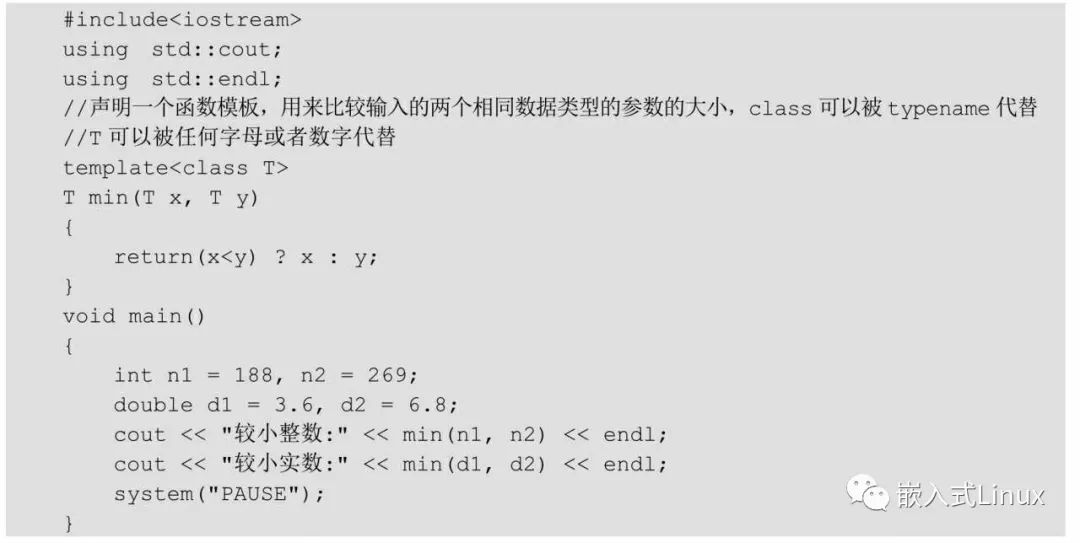宏比较值,坑的一B

昨晚上,我准备睡觉,连总给我发了一段代码
#include "stdio.h"
#define MAX_MACRO(a, b) ((a) > (b) ? (a) : (b))
int MAX_FUNC(int a, int b) {
return ((a) > (b) ? (a) : (b));
}
int main()
{
unsigned int a = 1;
int b = -1;
printf("MACRO: max of a and b is: %d\n", MAX_MACRO(++a,b));
printf("FUNC : max of a and b is: %d\n", MAX_FUNC(a, b));
return 0;
}
刚开始我是懵得一逼,我觉得应该有坑,就没有回答,连总也说了,这个问题肯定有坑,原话是「没有坑我就不发给你了」,既然有坑,我就没有继续看下去,我怕掉下去后起不来,觉都没得睡了。
然后今天我继续搞了下这个代码
执行结果如下
MACRO: max of a and b is: -1
FUNC : max of a and b is: 2
--------------------------------
Process exited after 0.03527 seconds with return value 0
请按任意键继续. . .
我百思不得姐,遂上网查了下,得到的结果如下
http://www.myexception.cn/c/324054.html
------解决方案--------------------
因为a是unsigned,比较时b会转成unsigned,(unsigned)-1是最大的
------解决方案--------------------
1.在包含两种数据类型的任何运算里,两个值都被转换成两种类型里面的较高级别。
2.类型级别从高到低的顺序是long double, double, float, unsigned long long, long long, long, unsigned int 和 int.
基于这样的解释,我把上面的代码修改成这样
#include "stdio.h"
#define MAX_MACRO(a, b) ((a) > (b) ? (a) : (b))
int MAX_FUNC(int a, int b) {
return ((a) > (b) ? (a) : (b));
}
int main()
{
unsigned int a = 1;
long b = -1;
printf("MACRO: max of a and b is: %d\n", MAX_MACRO(++a,b));
printf("FUNC : max of a and b is: %d\n", MAX_FUNC(a, b));
return 0;
}
我把 int 修改成了 long,因为long在unsigned int的前面,如果上面的解释正确,那么应该输出的是1。
实际输出如下:
MACRO: max of a and b is: -1
FUNC : max of a and b is: 2
--------------------------------
Process exited after 0.03618 seconds with return value 0
请按任意键继续. . .
所以上面的解释不正确
针对这个问题,我们在群里讨论了很久,得出了结论只能是 这是未定义行为。
未定义行为 就是编译器想怎么就怎么搞,但是写这个代码的人,肯定也是有问题的,因为这个代码是可以优化的。
还有一种情况,我们把代码修改成下面这个样子
#include "stdio.h"
#define MAX_MACRO(a, b) ((a) > (b) ? (a) : (b))
int MAX_FUNC(int a, int b) {
return ((a) > (b) ? (a) : (b));
}
int main()
{
unsigned char a = 1;
long b = -1;
printf("MACRO: max of a and b is: %d\n", MAX_MACRO(++a,b));
printf("FUNC : max of a and b is: %d\n", MAX_FUNC(a, b));
return 0;
}
这时候代码的输出,大家可以先思考一下
思考后,,,,,,,,,
代码输出如下
MACRO: max of a and b is: 3
FUNC : max of a and b is: 3
--------------------------------
Process exited after 0.03109 seconds with return value 0
请按任意键继续. . .
原因是,宏替换后,++a 被替换了3次
MAX_MACRO(++a,b)
((++a) > (b) ? (++a) : (b))
上面扯了那么多,主要是想说两个事情
1、宏获取最大值的代码,这么写容易出现问题。
2、知道了问题,我们就需要知道如何写是正确的,用函数的方式就是一种正确的方式
当然,不仅是我们的代码是这样写的,我看到内核代码里面也这样写
weiqifa@bsp-ubuntu1804:~$ head -n 2 /usr/include/sys/param.h
/* Compatibility header for old-style Unix parameters and limits.
Copyright (C) 1995-2018 Free Software Foundation, Inc.
weiqifa@bsp-ubuntu1804:~$ egrep 'MIN\(|MAX\(' /usr/include/sys/param.h
#define MIN(a,b) (((a)<(b))?(a):(b))
#define MAX(a,b) (((a)>(b))?(a):(b))
weiqifa@bsp-ubuntu1804:~$ uname -sr
Linux 4.15.0-117-generic
weiqifa@bsp-ubuntu1804:~$
既然这个宏不安全,还这样写出来,只能说有一种可能,写的人希望用这个函数的人比较专业
— — 网上也给出了一个比较专业的写法
#define max(a,b) \
({ __typeof__ (a) _a = (a); \
__typeof__ (b) _b = (b); \
_a > _b ? _a : _b; })
__typedef__ 这个关键字也有点鸡肋,懂的人比较少,之前分析一个内核函数的时候解释过。
—— 测试代码
#include "stdio.h"
int main(void)
{
int a = 100;
__typeof__(a) b = -20;
printf("%d %d\n",sizeof(b),b);
return (0);
}
程序输出
4 -20
--------------------------------
Process exited after 0.03424 seconds with return value 0
请按任意键继续. . .
好,既然我们知道了 typedef 这个好东西,我们再修改一个测试程序
#include "stdio.h"
#define MAX_MACRO(a, b) ((a) > (b) ? (a) : (b))
int MAX_FUNC(int a, int b) {
return ((a) > (b) ? (a) : (b));
}
#define max(a,b) \
({ __typeof__ (a) _a = (a); \
__typeof__ (b) _b = (b); \
_a > _b ? _a : _b; })
int main()
{
unsigned char a = 1;
long b = -1;
printf("MACRO: max of a and b is: %d\n", max(++a,b));
printf("FUNC : max of a and b is: %d\n", MAX_FUNC(a, b));
return 0;
}
这个代码也是有坑的,不小心的人可能又掉坑里了。
程序输出
MACRO: max of a and b is: 2
FUNC : max of a and b is: 2
--------------------------------
Process exited after 0.03569 seconds with return value 0
请按任意键继续. . .
把 __typeof__ 修改成 typeof 再试一次
#include "stdio.h"
#define MAX_MACRO(a, b) ((a) > (b) ? (a) : (b))
int MAX_FUNC(int a, int b) {
return ((a) > (b) ? (a) : (b));
}
#define max(a,b) \
({ typeof (a) _a = (a); \
typeof (b) _b = (b); \
_a > _b ? _a : _b; })
int main()
{
unsigned char a = 1;
long b = -1;
printf("MACRO: max of a and b is: %d\n", max(++a,b));
printf("FUNC : max of a and b is: %d\n", MAX_FUNC(a, b));
return 0;
}
程序输出
MACRO: max of a and b is: 2
FUNC : max of a and b is: 2
--------------------------------
Process exited after 0.02998 seconds with return value 0
请按任意键继续. . .
可以看到,结果和上面的一样
— — 再看一个修改方案
除了上面的修改方案外,还有另外一种修改方案
代码如下
#include
#define GENERIC_MAX(x, y) ((x) > (y) ? (x) : (y))
#define ENSURE_int(i) _Generic((i), int: (i))
#define ENSURE_float(f) _Generic((f), float: (f))
#define MAX(type, x, y) \
(type)GENERIC_MAX(ENSURE_##type(x), ENSURE_##type(y))
int main()
{
int a = 3;
int b = 5;
printf("%d\n",MAX(int,a,b));
return 0;
}
程序输出
5
--------------------------------
Process exited after 0.02871 seconds with return value 0
请按任意键继续. . .
这种做法很明显,就是指定需要比较的类型,可以通过这个方法规避因为类型的问题引入错误。
— — C++ 的模板函数可以解决这个问题
模板函数出现后,这类问题就显得太简单了
#include
#include
using namespace std;
template
inline T const& Max (T const& a, T const& b)
{
return a < b ? b:a;
}
template
inline T const& Min (T const& a, T const& b)
{
return b < a ? b:a;
}
int main ()
{
int i = 2;
int j = -1;
cout << "Max(i, j): " << Max(i, j) << endl;
cout << "Min(i, j): " << Min(i, j) << endl;
double f1 = 13.5;
double f2 = 20.7;
cout << "Max(f1, f2): " << Max(f1, f2) << endl;
cout << "Min(f1, f2): " << Min(f1, f2) << endl;
string s1 = "Hello";
string s2 = "World";
cout << "Max(s1, s2): " << Max(s1, s2) << endl;
cout << "Min(s1, s2): " << Min(s1, s2) << endl;
return 0;
}
程序输出
Max(i, j): 2
Min(i, j): -1
Max(f1, f2): 20.7
Min(f1, f2): 13.5
Max(s1, s2): World
Min(s1, s2): Hello
--------------------------------
Process exited after 0.1118 seconds with return value 0
请按任意键继续. . .
最后说一句,相同的东西比较才有意义,不同的东西,比较没有多大意思。
函数模板,如果理解的不深刻,可以看看书籍


